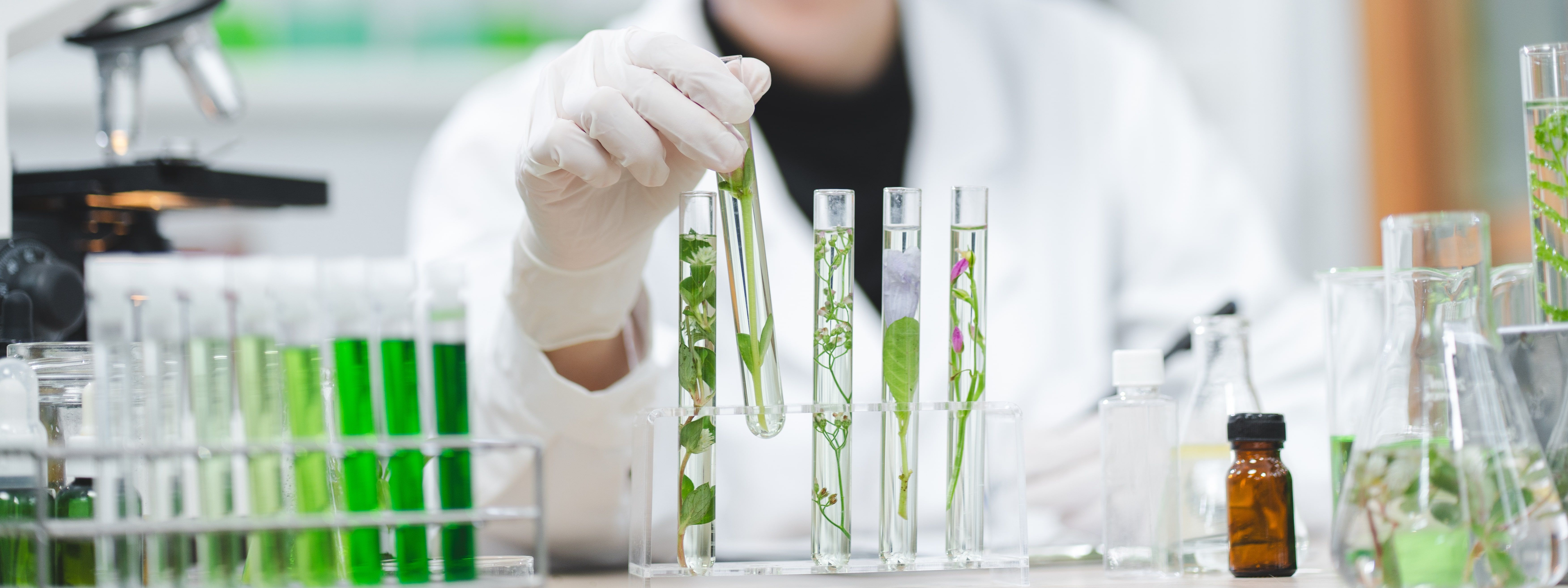Advances in Plant-Made Vaccine Technology
Review article explores the latest developments surrounding expression and purification strategies.

With infection viruses—such as severe acute respiratory syndrome coronavirus-2 (SARS-CoV-2) and influenza—increasing in prominence, it has brought to light the importance of continuing to find effective and quick options to biomanufacture recombinant vaccine antigens at large scale.
In fact, a review article published by Frontiers highlights the expression and well downstream purification processes for plant-made vaccines, including molecular farming or biopharming, which, with the help of technology, is able to use the ability of plant’s cells, organs, or tissues as bio-factories in order to produce biopharmaceuticals and other high-value proteins, such as vaccine antigens.
The authors cite molecular farming as an alternative to the traditional methods of protein production that use prokaryotic and eukaryotic hosts, such as Saccharomyces cerevisiae, Chinese hamster ovary (CHO) cells, Escherichia coli (E. coli), human embryonic kidney (HEK) cells, and Pichia pastoris. These plant cells have the capability to process proteins post transcription to make tailored glycan structures.
There have been a variety of new vaccine options that have been explored, including the use of transgenic plants for the production of edible vaccines. The process consists of edible seeds or vegetative tissues being engineered to produce recombinant vaccines that can be administered orally, eliminating the use of needles. In fact, as a plant species, potato has been successful with this oral delivery system. These do not have any cold chain requirements, which was a challenge during the COVID pandemic, according to the study authors.
When it comes to expression systems, those derived from plants are considered more favorable for their low cost, ease of purification, and their already available protocols, the study noted. Nicotiana benthamiana is an ideal example because of its ability to make proteins only days following the delivery of the DNA-construct. It is often used for commercial biomanufacturing of antibodies, enzymes, hormones, therapeutics, and vaccines.
Being able to reach the highest possible yield is a major concern for high-value proteins, because downstream processing costs can increase significantly when proteins are removed from more diluted mixtures, according to the study. The authors noted that transgenic plant development can be a bit tedious, requiring an average of two to three years until a homozygous line for a host plant is attained. Transient expression, on the other hand, allows for production of large quantities of recombinant protein.
As another option for vaccine production, in vitro cultured plant cells, or plant cell suspension culture, have shown potential as bioproduction platforms for alternative proteins. These could consist of transgenic plants, hairy roots, protoplasts or cell cultures; they combine the advantages of whole-plant cultivation systems with the benefits of microbial and mammalian cell cultures, which could be a “versatile” choice for producing therapeutic protein, the authors noted.
The review also dives deep into the use of seeds to express recombinant proteins, with the USDA authorizing the field release of transgenic plant seeds that express the proteins lactoferrin, serum albumin and human lysozyme in rice, the apolipoprotein in safflower, as well as brazzein and hepatitis B surface antigen in corn. Leaf-based (tobacco, alfalfa) and fruit-based expression platforms (lettuce, tomato) offer their share of advantages, including high biomass yields and their ability to be eaten raw respectively.
In summation, said the authors, “as plant expression platforms evolve, a major focus of research and development will move from upstream to downstream processing, to increase overall productivity. Downstream processing accounts for a major portion of the total costs for operation and product manufacturing. Hence, to be economically feasible, selective and efficient processes for product extraction and purification are increasingly called for. The efficiency of downstream processing is dependent on the concentration of the recombinant protein, complexities of cell-free culture media and plant extracts as well as the required level of purity of the final product.”
Reference
1. Venkataraman S, Khan I, Habibi P, Le M, Lippert R and Hefferon K (2023) Recent advances in expression and purification strategies for plant made vaccines. Front. Plant Sci. 14:1273958. doi: 10.3389/fpls.2023.1273958